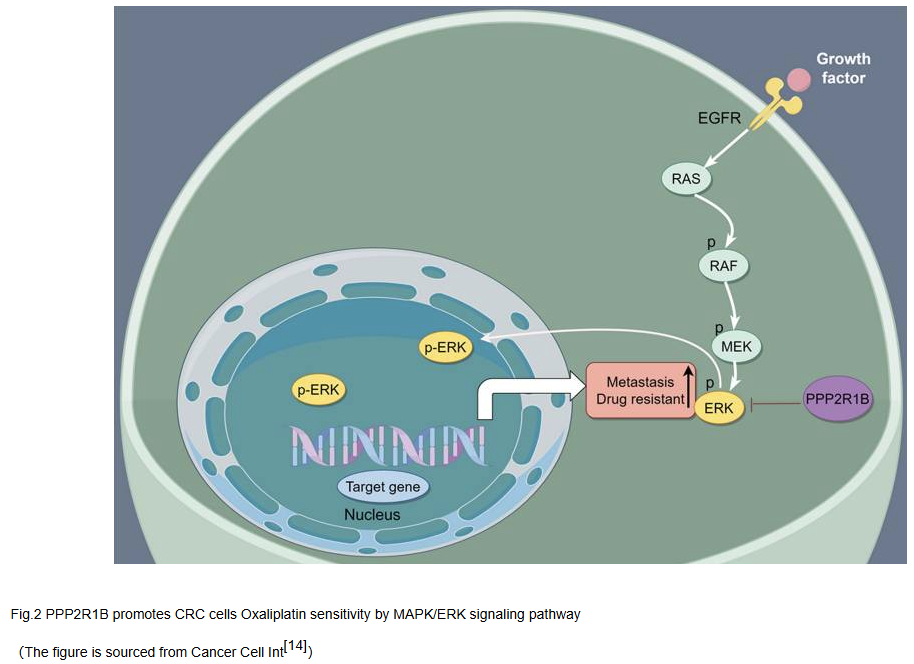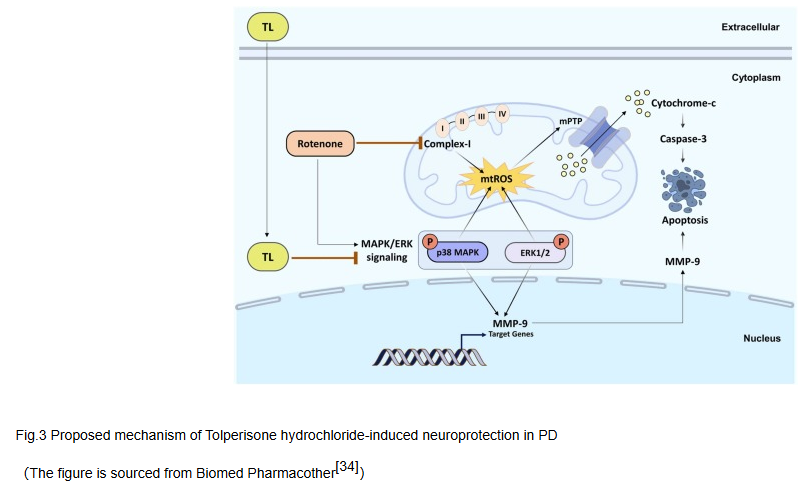A core hub from basic biology to human diseases
The mitogen-activated protein kinase (MAPK) cascade is a key signaling pathway regulating various cellular processes, including proliferation, differentiation, apoptosis and stress response. The MAPK pathway functions through signal cascades, transmitting extracellular signals to intracellular targets, enabling cells to respond to various specific extracellular stimuli. The MAPK pathway includes three major kinases, namely MAPK kinase-kinase (MAP3K), MAPK kinase (MAPKK), and MAPK, which activate and phosphorylate downstream proteins. Current research has identified four major and distinct MAPK cascade reactions: extracellular signal-regulated kinases 1 and 2 (ERK1/2), c-Jun N-terminal kinases (1, 2, and 3), p38 MAPK (α, β, γ, and δ), and ERK5. This article focuses on the MAPK/ERK signaling pathway.
The MAPK/ERK pathway is a crucial cellular signaling pathway. Its core function is to amplify and transmit extracellular growth factor signals (such as proliferation-promoting and differentiation-inducing instructions) step by step into the cell nucleus. By activating specific transcription factors, it regulates gene expression and thereby dominates multiple key biological processes of cells, including proliferation, differentiation, survival, and metabolism. Excessive activation of upstream proteins and kinases in the ERK pathway has been proven to induce various diseases, including cancer, inflammation, developmental disorders and neurological diseases. Furthermore, the MAPK/ERK pathway plays a core role in the process of organ regeneration. MAPK/ERK signaling is rapidly activated in response to injury stimuli and coordinates pro-regeneration mechanisms, including cell survival, migration, proliferation, growth, as well as the transcription and translation of related genes.
Research related to MAPK/ERK pathway and tumors
Dysfunction of the MAPK/ERK pathway is one of the main causes of the development of various cancers. Multiple studies have found that the activation of the MAPK/ERK signaling pathway can promote the occurrence, proliferation, migration and invasion of cancers such as colorectal cancer (CRC), breast cancer, ovarian cancer, liver cancer, small cell lung cancer, thyroid cancer, and gastric cancer. Direct or indirect inhibition of MAPK/ERK signaling can suppress tumor proliferation and migration, and weaken malignant phenotypes. MAPK/ERK signal is associated with drug resistance in tumor treatment. Contrary to these results, the MAPK/ERK pathway is a key regulator of the anti-tumor immune sensitivity of glioblastoma (GB) cells. Experimentally induced ERK phosphorylation in GB cells enhanced the survival rate of immune checkpoint blockade (ICB) therapy, reactivating and generating durable anti-tumor immunity. In addition, a variety of compounds exert pro-apoptotic effects in tumors through the MAPK/ERK pathway. These studies indicate that the activation of the MAPK/ERK pathway is a "double-edged sword" for tumor progression, highlighting its potential value in tumor treatment.

Research related to MAPK/ERK pathway and cardiovascular diseases
The abnormal activation of the MAPK/ERK signaling pathway is widely involved in the occurrence and development of cardiovascular diseases. Under the stimulation of pressure overload, ERK1/2 phosphorylates and activates ETS2, forming a complex with NFAT, and drives cardiac hypertrophy. Inhibiting the MAPK/ERK signal transduction can suppress the further hypertrophy of cardiomyocytes. Down-regulating the MAPK/ERK pathway can prevent ANGII-induced cardiac hypertrophy in mice. Studies have shown that ERK1/2 signaling is an important regulator of early elastase activation, and its pharmacological inhibition may prevent the progression of aortic valve disease (AVD). Andrographolide improves aortic valve proliferation by inhibiting cell proliferation through the MAPK-ERK signaling pathway. Increased expression of phosphorylated ERK has a protective effect on myocardial ischemia/reperfusion injury, reduces myocardial infarction area, and decreases myocardial cell apoptosis. These results provide assistance for precisely targeting MAPK-ERK for the prevention and treatment of cardiovascular diseases.
Research related to MAPK/ERK pathway and Neurodegenerative diseases
The MAPK/ERK pathway is an important pathway related to neuroinflammation during the development of neurodegenerative diseases. Studies have shown that the neuroprotective effect of ginsenoside Rg2 on Alzheimer's disease (AD) may be related to the MAPK-ERK pathway. Inhibiting the MAPK/ERK pathway can reverse the inhibitory effect of Aβ1-42 peptide on the migration of neural stem cells/progenitor cells (NSPC) and improve the therapeutic effect of NSPC on AD. Inhibiting MAPK signal transduction in Parkinson's disease (PD) mouse models can rescue neuronal cell death and motor dysfunction. Inhibiting the MAPK/ERK pathway can reduce abnormal autophagy and apoptosis in cell lines with LRRK2 mutations (one of the causes of PD). MAPK/ERK signaling regulates the hypoxia-induced autophagy process, thereby improving the activity of motor neurons with SOD1 mutations (one of the causes of amyotrophic lateral sclerosis). Therefore, exploring the specific regulatory mechanism of the MAPK signaling pathway may provide clues for the development of new therapeutic drugs for neurodegenerative diseases.

Cloud-Clone supports scientific research and provides relevant detection reagent products for a wide range of scientific researchers. The core product numbers of the relevant targets are as follows:
Take advantage of the current Cloud Clone promotions valid unitl 30/11/2025


Come and meet us at Emerging Voices in Cancer Research: A Multidisciplinary Symposium

DBA-ITALIA Srl
Via Umbria 10
20054 Segrate (Milano)
Tel. +39 02-26922300
If you no longer wish to receive these announcements
click here



